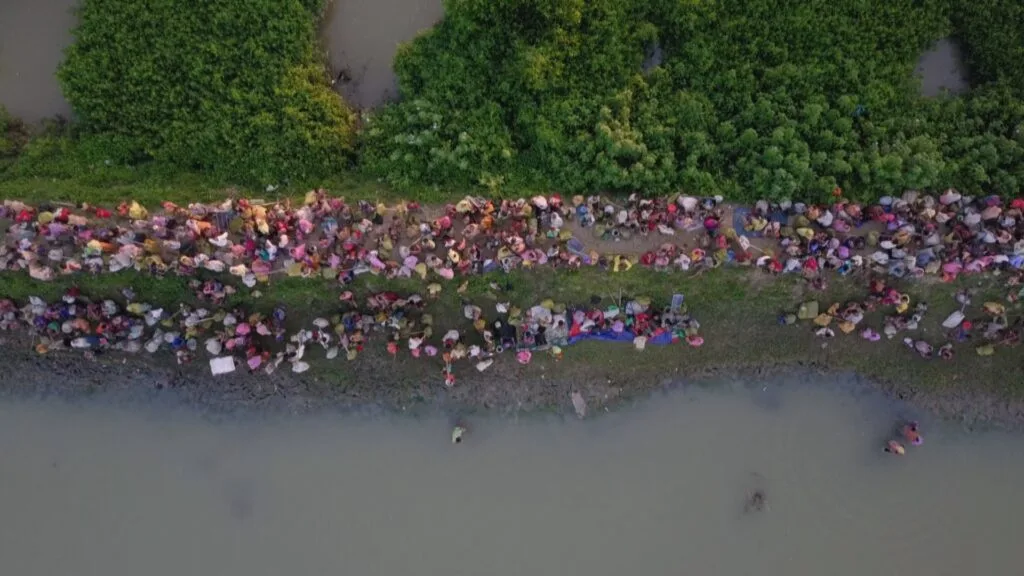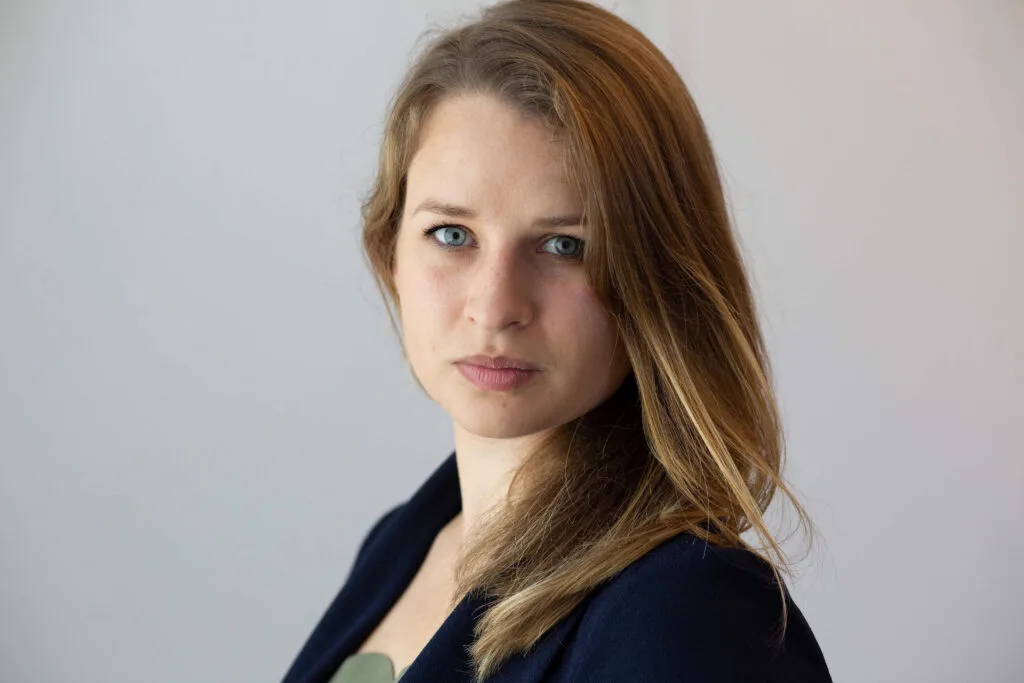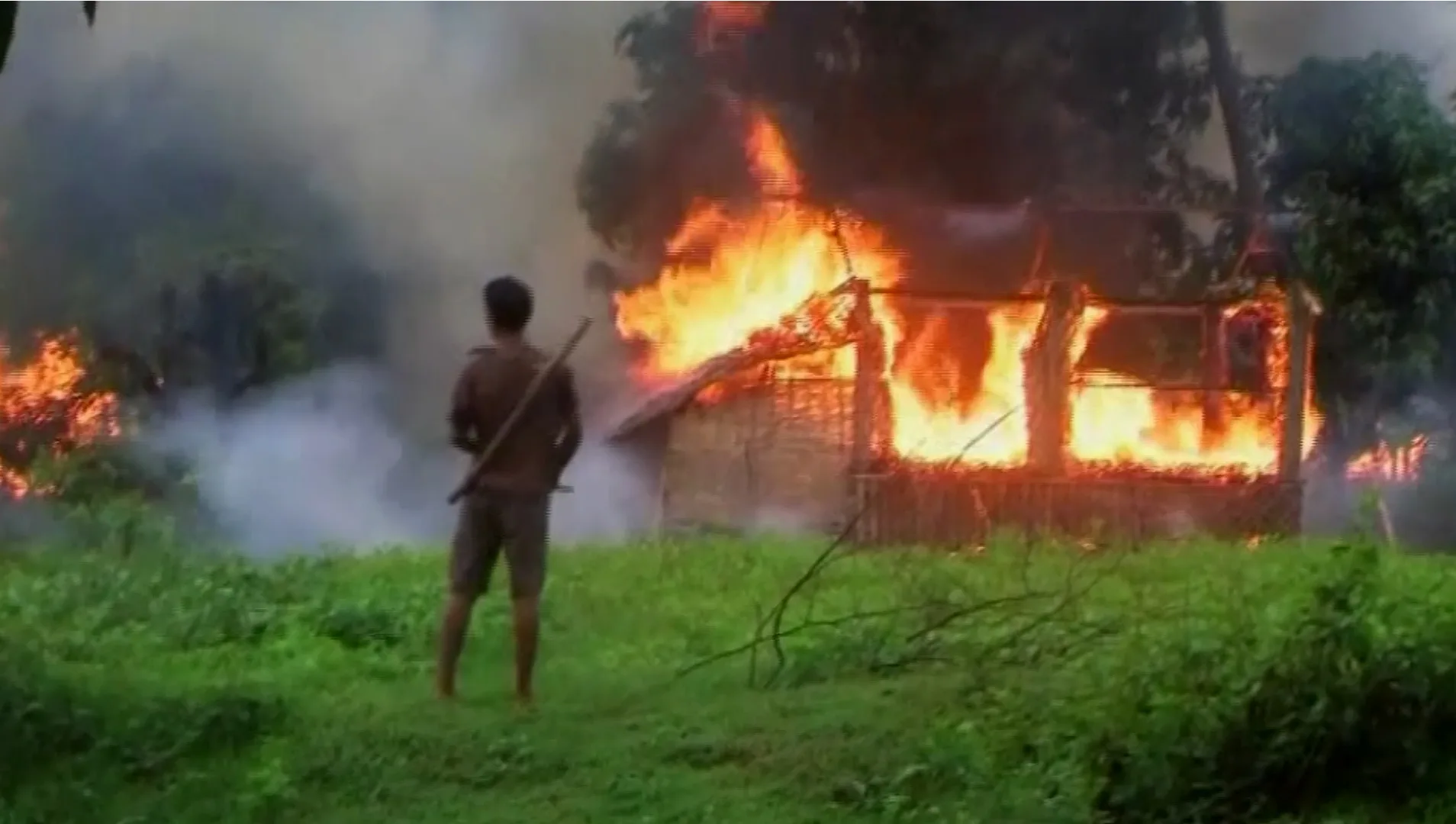International Criminal Court to Investigate Crimes Against Rohingya

By
Zoe ToddNovember 15, 2019
Share
The International Criminal Court said it will investigate Myanmar’s alleged crimes against the Rohingya people, two years after evidence emerged of a military campaign of mass murder, rape and other atrocities.
The investigation will encompass two waves of violence in Myanmar’s Rakhine State. In 2016, Rohingya insurgents claimed responsibility for attacks on three police posts in the region, in which nine border officers were reported killed. In response, government troops attacked multiple villages. By the following August, after another attack on security forces, the military retaliated by unleashing violence against the entire Rohingya community.
FRONTLINE last year exposed the brutal tactics Myanmar’s military turned against the Rohingya, in Myanmar’s Killing Fields. The hour-long film, which is available to stream online, includes shocking secret video and eyewitness accounts of mass executions, rapes and entire villages burned to the ground. Surveys conducted by Médecins Sans Frontières at refugee camps in Bangladesh suggest at least 6,700 Rohingya were killed in Rakhine State over a single month in the summer of 2017.
The Rohingya are a historically persecuted Muslim minority in the majority-Buddhist country of Myanmar. As the attacks escalated, thousands began to flee, walking for days through jungles and mountains to reach neighboring Bangladesh. Others attempted perilous escapes by sea.
More than 740,000 Rohingya have now fled to Bangladesh, according to the United Nations High Commissioner for Refugees. Nearly half are children younger than 12.
ICC prosecutor Fatou Bensouda in July requested authorization to launch a probe into Myanmar’s alleged crimes of deportation, persecution and violence. The international court exists to investigate and try charges such as genocide, war crimes and crimes against humanity.
Bensouda asked to investigate crimes “in which at least one element occurred on the territory of the People’s Republic of Bangladesh,” according to the ICC. “And within the context of two waves of violence in Rakhine State on the territory of the Republic of the Union of Myanmar, as well as other crimes which are sufficiently linked to these events.”
A panel of ICC judges last year ruled that the court has jurisdiction over the alleged deportation of Rohingya people from Myanmar because an element of the crime — crossing the border — involved Bangladesh. Unlike Myanmar, Bangladesh is member to the treaty that established the ICC.
Myanmar has previously dismissed attempts by the court to gain jurisdiction over crimes that allegedly occurred in the country. The military has also repeatedly denied abuses and says it has been fighting Islamic terrorists.
For more on how the military’s campaign unfolded — and how FRONTLINE corroborated evidence of the violence — stream Myanmar’s Killing Fields in full below.

Related Documentaries
Latest Documentaries
Related Stories
Related Stories
Explore
Policies
Teacher Center
Funding for FRONTLINE is provided through the support of PBS viewers and by the Corporation for Public Broadcasting, with major support from Ford Foundation. Additional funding is provided the Abrams Foundation, Park Foundation, John D. and Catherine T. MacArthur Foundation, Heising-Simons Foundation, and the FRONTLINE Trust, with major support from Jon and Jo Ann Hagler on behalf of the Jon L. Hagler Foundation, and additional support from Koo and Patricia Yuen. FRONTLINE is a registered trademark of WGBH Educational Foundation. Web Site Copyright ©1995-2025 WGBH Educational Foundation. PBS is a 501(c)(3) not-for-profit organization.





















